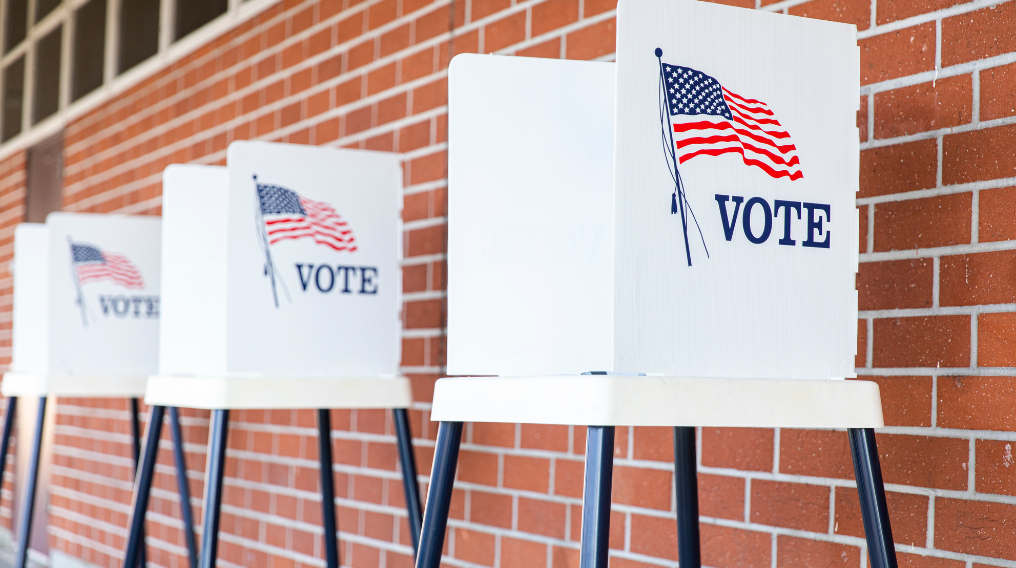It’s official, we are now in an election year. With the 2024 presidential election fast approaching, it is natural to wonder what that means for your future, particularly from a financial lens. Should you change course or maintain your current approach? Of course, the stock market is influenced by countless factors, many of which cannot be predicted. Still it begs the question, how have U.S. presidential elections impacted the market in the past?
What Does History Tell Us?
In the past two presidential elections, there was talk on the internet that the results could put the stock market into a tailspin. A deeper dive into the data and time spent on a little research helped to show that those worries were unfounded. Over the past two elections, no matter which party got elected, the stock market went up after the election:
- The S&P 500 went up almost 24% in the year after President Trump was elected in 2016.
- After President Biden was elected in 2020, the market returned over 40% the following year. [i]
Further, an extensive analysis by Vanguard, including data all the way back from 1860, suggests that “markets tend to ignore the results of presidential elections.” [ii]
What about Midterm Elections?
Of course, midterm elections follow not too far behind. What can history teach us about those?
The news is equally good for investors nervous about what politics can do to their portfolios. Research from LPL Financial found that stocks have consistently delivered positive returns since World War II in the year after the midterm election. [iii] Remarkably, along with the length of this record—this pattern holds true regardless of which party comes out on top.
Is Political Gridlock the Investor’s Best Friend?
One fascinating takeaway from another study: the stock market appears to favor a political stalemate, particularly with a Democrat at the presidential helm.
Research by investment bank Jeffries analyzed market performance since 1989. Among their findings:
- When a Democrat was President and Republicans controlled at least one chamber of Congress, the S&P 500 averaged a massive 33.9% return.
- During times without political gridlock, the average return was much less, around 22.5%. [iv]
Our take? Gridlock probably moderates the excesses of any one side, increasing investor confidence.
What about the Months Leading Up to the 2024 Election?
Although there are no guarantees, our roadmap is now a bit clearer based on this historical data. What about the months leading up to the election, though?
Analysts at U.S. Bank observed the stock market tended to have a muted performance in the year leading up to the election. A review of the past 90 years of market data showed that leading up to a presidential election, gains averaged less than 6%. In contrast, the average annual return would be an expected 7.5% in other periods. [v]
Nothing earthshaking, but something to keep in mind as we enter 2024.
Another interesting tidbit from this research: When a president is re-elected or if the same party retains control of the White House, returns the following year tend to be slightly higher.
Key Takeaways
Despite what we might see in the media, the data tells us that no one person or political party appears able to dramatically influence the market. On the other hand, a gridlocked government can actually be good for our investments! Regardless of who wins in November, history tells us that it will not likely have an outsized impact on our investments.
As we approach the 2024 election, it’s wise to remember that the market’s resilience usually transcends political cycles. While making investment decisions based on election forecasts and other possibilities can be tempting, history suggests a more patient, long-term approach often proves beneficial over time.
[i] https://www.forbes.com/sites/bill_stone/2022/10/02/midterm-elections-the-politics-of-the-stock-market/?sh=7d97de0071cc
[ii] https://investor.vanguard.com/investor-resources-education/article/presidential-elections-matter-but-not-so-much-when-it-comes-to-your-investments
[iii] https://www.cnbc.com/2019/03/16/stocks-have-rallied-after-every-midterm-election-since-world-war-ii.html
[iv] https://www.financialsamurai.com/average-stock-market-returns-political-gridlock/
[v] https://www.usbank.com/investing/financial-perspectives/market-news/how-presidential-elections-affect-the-stock-market.html
